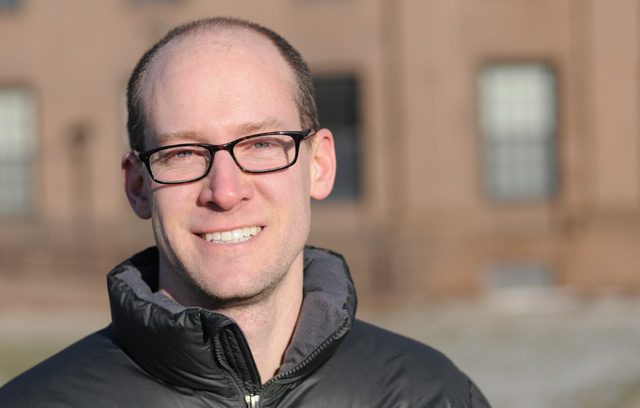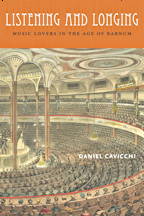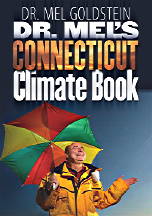Parker Smathers Selects Manuscripts, Edits Books at Wes Press

Q: Parker, when did you join the staff at Wesleyan University Press, and what attracted you to Wesleyan?
A: I came to work at Wes Press in Fall 2007. As an aspiring poet, some of my favorite poets have been published by Wesleyan over the years. As an editor in academic publishing, it was a great chance to work for one of the best presses in the country.
Q: Please explain your role as an acquisitions editor? Do you select manuscripts that may be of interest to the Press, or do you help edit books? What do you look for?
A: Both of the above, but mainly I select manuscripts. I look for projects that look like they would be a good fit for our press in the four areas I acquire books in: music, film, science fiction, and Connecticut-related titles. Suzanna Tamminen, our editor-in-chief/director, is in charge of the dance and poetry titles we publish. In all cases, the books need to be innovative and inherently unique, whether they be for scholars or general readers.
Q: How many books does Wes Press publish on an annual basis? Do you have any favorites or recommendations?
A: We try to keep it at 28, but it’s really hard to draw the line with so many active lists and so much interesting work being done. This spring we have two music books on the Free Jazz era that are really exciting: Always in Trouble is about the New York indie label ESP-Disk’ that put out ground-breaking jazz albums in the sixties as well as politically controversial albums by folk-rock bands like The Fugs. The second, Reel History, is unusual because it’s an enhanced ebook—the first such project I’ve worked on—and because it’s a work of nonfiction told in the form of a graphic novel.

Another music book published recently is by Dan Cavicchi, an American studies scholar: Listening and Longing: Music Lovers in the Age of Barnum. Dan’s book is grounded in painstaking archival research, and uses the diaries kept by concert-goers in the 19th century to unpack their experiences and impressions of the nascent music scene when it was first becoming a lucrative, big-scale phenomenon. His chapter on Walt Whitman, music, and listening in New York City was particularly germane to me as a music lover who also has an MFA in poetry.
My favorite project I’m working hard on now is a book I’m editing for our poetry list, The Collected Poems of Joseph Ceravolo. Joseph Ceravolo is one my favorite poets ever, so this project is particularly special, something I never would have gotten to work on if I hadn’t come to Wesleyan.
Q: As one of only four staff members at WesPress, what is your interaction with the books and each other? Do all four of you work on each book collaboratively?
A: Very collaboratively. We each have our assigned task—Suzanna and I are the editorial team and Leslie Starr and Stephanie Elliott do the marketing and publicity —but most everything we do circulates in-house. We have impromptu meetings almost daily, it seems, so it really helps keep things running smoothly (usually) and the pace up. It’s essential in this business to always be on the same page and have a clear idea of where something’s going and who needs to do what. I should also mention too, that we get a tremendous amount of help from student workers who take on the complex tasks that at other presses salaried employees perform. I am always impressed by the level of interest and professionalism they bring to the 10-hour-a-week job.
Q: You came to Wesleyan from the University of Chicago Press. What do you like best about working for academic presses?

A: Well, I haven’t worked for a commercial press, but a friend of mine put in a year assisting a senior editor at a press in Boston whose areas of acquisition were, if I recall correctly, self-help and pet books. There’s really no comparison. You have to get really lucky, it seems, in commercial publishing to work on books that mean something to you on a personal level, let alone ones that impact the way people think about themselves and the world they live in. Most books don’t. I can honestly say that academic books do, and that poetry, in its own way, does too. Another thing that academic presses do well is the “value-added” component of publishing. Wesleyan, Chicago, most university presses—they carefully design, copyedit, vet books to have lasting value. And university presses are in a unique position to connect with their locale; regional publishing is somewhat of a “back to the land” phenomenon, in my mind, and I’ve enjoyed immensely getting to better know my new home state through the books we publish. The Connecticut weatherman Dr. Mel, who, sadly, passed away in January — his book on Connecticut weather is a good example. Who would think that a book on weather could be a page-turner, but Dr. Mel’s Connecticut Climate Book is. It’s Dr. Mel’s passion for weather that shines through on every page. Regional or scholarly, it’s an author’s passion for the subject that makes a book great, and I see my role as editor as finding those books that have that investment.
Q: Where did you attend college and what is your personal interest in writing?
A: I attended Rhodes College in Memphis, Tennessee. At the time I guess wanted to write Southern novels like William Faulkner, so Rhodes—which is just up the road from Oxford, Mississippi—seemed like a good spot to try. As it turns out fiction wasn’t for me, but poetry was. I took a poetry class at the end of college and it all just suddenly dawned on me, in writing just a poem or two, that this was what I was wanted to do.
Q: What are your hobbies?
A: Come spring, when the days are longer, you’re most likely find me on a bike, on some random windy road within a 10-to-15-mile radius in any direction from Middletown. There’s much to like about living in a (relatively) quiet New England college town, but biking for me is what makes me love where I live. Connecticut hills are perfect for biking. I also love reading books (surprise) and listening to music, and one of these days I intend to hike the Sierra Nevadas from Mexico to Canada.

